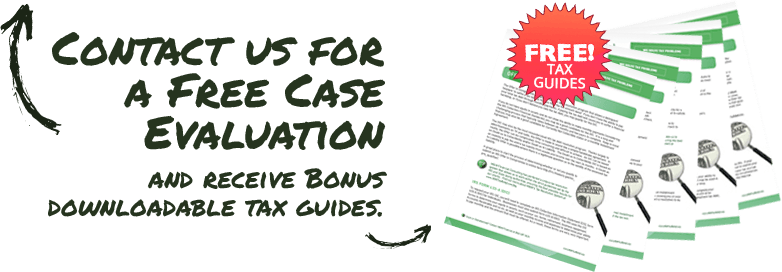Help Your Business Avoid IRS Levies, Seizures and Court Orders
There are a few things you must do when you or your business owes the IRS. Maintaining current tax compliance is the most important. This means filing all tax returns on time and paying all current taxes in full and on time.
Do Not Skip Your Current Tax Payment(s) to make a payment toward the back-tax.
This is especially important if your business owes Payroll Tax.
Remember this – If you can make your current tax payments but have little or no ability to pay your back-taxes, the IRS is more likely to work with you than if you don’t or can’t pay your current taxes. When I say, “work with you”, I mean allow your business to continue operating. The IRS will not allow a business to continually accrue employment tax debts.
Are you asking yourself –
- Where do I start? Here
- When do I start? Now
- If you've received a proposal from us, grab it and Call Us.
- If you need a proposal from us, grab your phone and Call Us.
- Read below. If that's you, definitely Call us - (866) 487-5624.
Are you a Payroll Tax Repeater?
The IRS is tough on Payroll tax debtors. Add in a shaky history and it can get worse, a lot worse.
A Repeater is a taxpayer who repeatedly accrues new tax liabilities and/or refuses to file timely tax returns. Basically, Repeaters are businesses that have an ongoing issue with tax compliance.
Internal Revenue Manual section 5.7.8.2 (03-09-2017) defines a Repeater as a taxpayer who has more than one delinquent period or delinquent investigations within the last 2 years.
In-Business Repeater and Pyramiding Taxpayers
In-Business Repeater
Repeat tax accrual can mean different things. Maybe your business owed payroll tax in a single quarter a couple of years ago, you paid it in full through an Installment Agreement and now you’ve accrued another payroll tax debt. Or, maybe your business owes tax in every quarter for the past 2+ years.
Repeaters are handled differently by the IRS than first-time delinquent taxpayers. Special attention is given to Repeaters to make sure that they're brought back into tax compliance. Revenue Officers are instructed to “take appropriate action to bring them [Repeaters] back into tax compliance” – IRM 5.7.8.2.
Believe me, you don’t want special attention or “appropriate action” from the IRS Collections division.
Pyramiding Taxpayers
Pyramiding is a term used to describe a business that -
- Owes 2 or more delinquent payroll tax (Trust Fund tax) periods assigned to a Revenue Officer for collection, and
- Is not making current employment tax deposits.
The IRS presumes that a pyramiding business is using the IRS as its bank to pay other debt, while creating larger and larger Trust Fund tax liabilities. It has to be stopped, the sooner, the better.
Internal Revenue Manual 5.7.8.5
The Internal Revenue Manual (IRM) instructs Revenue Officers on how to handle Pyramidering taxpayers.
The IRM instructs IRS employees how to implement the tax law. It’s known as the Revenue Officer’s Bible.
IRM 5.7.8.5 (03-09-2017) Working Repeater Trust Fund Taxpayers to Address Pyramiding states:
“5. Pyramiding must be stopped immediately. Advise the taxpayer enforcement action will be taken if acceptable proof of compliance is not provided while their delinquent tax issues are resolved. If the taxpayer continues to pyramid, use all appropriate remedies to bring the taxpayer into compliance. If routine case actions are not effective in stopping the taxpayer from pyramiding, consider alternative solutions including seizure of physical assets and injunctive relief.”
IRM 5.7.8.5.1 (03-09-2017) Seizure and Sale of Repeater Taxpayer's Assets states:
“Taxpayers who continue to pyramid liabilities after contact are considered "won't pay" taxpayers as indicated in IRM 5.10.1.3, “Will Pay”, “Can’t Pay”, and “Won’t Pay” Factors, and the revenue officer must proceed with enforced collection.”
Notice the phrases used in the IRM.
- Enforced collection = bank account levies and A/R levies
- Seizure of physical assets = selling your assets to pay the tax
- Injunctive relief = a court order to cease your business operations
Call us directly at (866) 487-5624. It’s that urgent.
We Fix Tax Problems!








